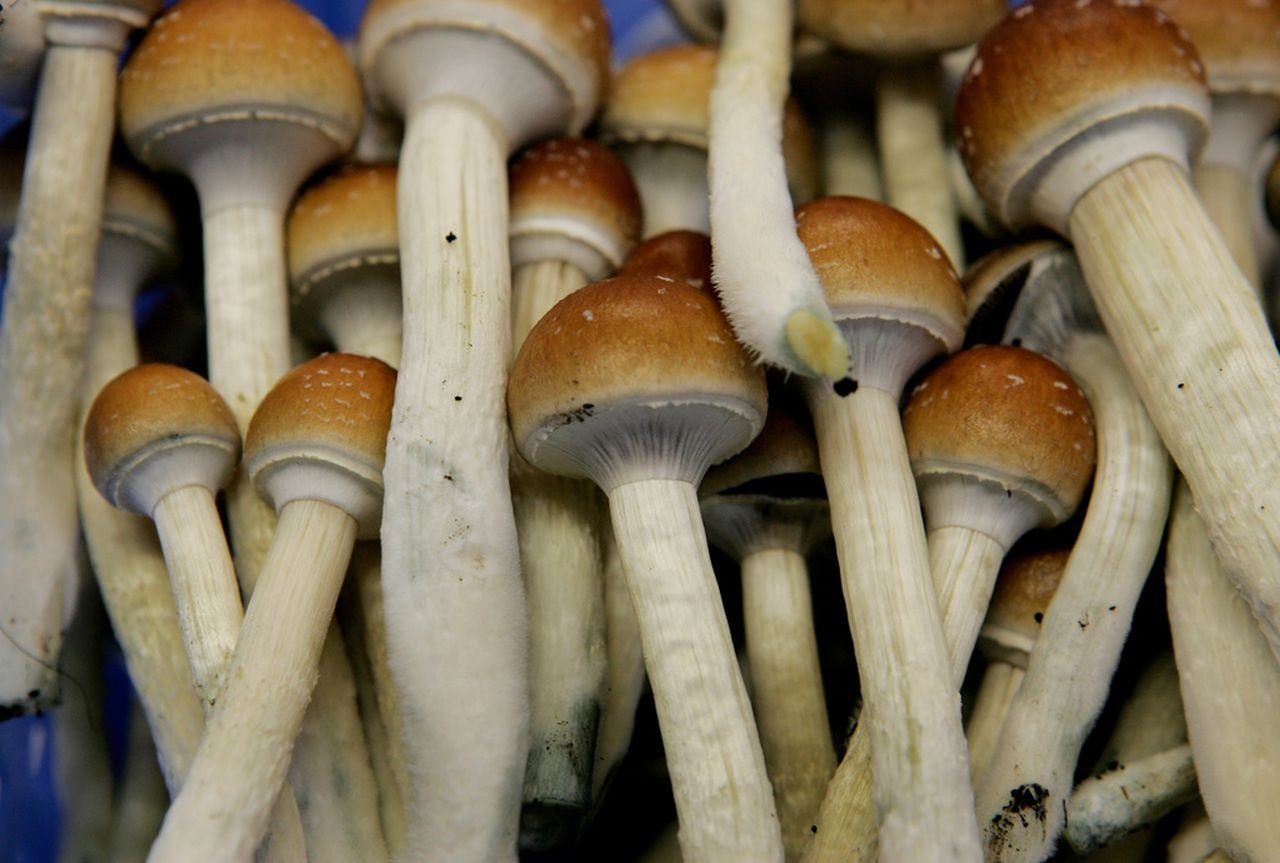Microdose magic mushrooms this holiday season
The holiday season is that magical time when we give thanks for the little things in life. Like the universal but unspoken pact between bosses and employees that Thanksgiving and the week between Christmas and New Year, at least, are both just elaborate games of pretend. It’s a delicate dance of minimal productivity, a skill some have been perfecting all year and will undoubtedly continue into 2024.
Not me, of course. There is no rest for those of us diligently skimming the abstract sections of climate change reports and then sharing them on social media so others will only half-read the title.
(Editor’s note: Reckon will continue working for readers throughout the season)
While a slow week is something to be thankful for, some people out there never stop hustling and have been rewarded lavishly for their efforts. But in obtaining extravagant riches and power, those people have also pushed the environment to its edge, according to the title of this article I didn’t bother to read.
This week in The Meltdown, we’ll look at the men who have gotten rich while literally destroying our planet. Then, we’ll discuss how to microdose magic mushrooms so you can survive your family through the holiday season and how to casually bring up climate change while looking your father directly in the eyes.
Drizzle
Top row from left to right: US chairman and CEO of BlackRock Larry Fink, Sen. Joe Manchin, D- W. Va. and CEO of the Coca-Cola Company James Quincey.
Bottom row from left to right: Executive chairman of Amazon Jeff Bezos, CEO of Koch Industries Charles Koch, Chevron CEO Mike Wirth and CEO of Exxon Darren Woods.Getty Images
For every brilliant lightbulb moment throughout human history, men lurk in the shadows, eagerly waiting to turn that progress into profit, even if it means playing Jenga with the environment. All while the rest of us are trying to avoid injuring ourselves on the increasingly slippery and polluted Twister mat of life.
So, who are these poster boys of eco-indifference? There were too many to choose from, an uncomfortable reality in a world where providing shareholder value has firmly supplanted even the most tepid notions of environmentally-friendly business practices.
The worst part is they think they are doing the world a favor.
In the mix, we have Amazon founder and executive chairman Jeff Bezos, who became one of the world’s wealthiest men by offering us things we definitely need, like dill pickle lip balm, Dr. Phil throw pillows and cheap audio devices that will listen to our conversations and remind us it’s raining outside. Hello Alexa.
Then there’s Coca-Cola CEO James Quincey, who has kindly turned our oceans and beaches into much-needed plastic bottle sanctuaries. And let’s not forget Exxon CEO Darren Woods, who is doing his very best to ensure we never run out of oil and gas. Bless him.
But in the interest of fairness, both companies were doing these things long before these bosses turned up.
Who are the rest of these business geniuses? Click here to find out.
Touch Grass

Magic mushrooms are seen at the Procare farm in Hazerswoude, central Netherlands, Friday Aug. 3, 2007. Procare is the Netherlands’ largest grower of hallucinatory mushrooms, supplying more than half the market, a legal business in The Netherlands as long as they are sold fresh. It’s high season for tourists, but for many the emphasis is on the word high. Thousands come specifically to smoke marijuana without fear of getting into trouble with the police. A relatively small number are interested in taking a ‘trip’ within a trip, using psychedelic mushrooms. (AP Photo/Peter Dejong) ORG XMIT: CLE2014071116553428
Thinking about how a small group of people have become wealthy by destroying a planet they don’t own can be frustrating. In past newsletters, I’ve provided many different ways to calm any eco-anxiety you might have. But sometimes, something more profound is needed — like consuming drugs. There are now a whole bunch of drugs that were once frowned upon that have gained widespread social and scientific acceptance.
We have discussed the benefits of legally consuming CBD and THC in the past. Magic mushrooms, also known as psilocybin, are now legal and decriminalized in a bunch of places around the country and are known to offer mental health benefits without major risk to your health. But please note psilocybin and THC are still illegal at the federal level.
In recent years, microdosing different types of drugs has become celebrated as a way to cope with various issues we all encounter. Here are five reasons why you might want to consider microdosing during the holiday season.
1. Microdosing may lead to better mood, reduced anxiety, and an overall sense of well-being.
2. It can promote altered states of perception and heightened mindfulness, which some people find beneficial for self-reflection and personal growth.
3. There is anecdotal evidence suggesting that microdosing psychedelics may alleviate symptoms of depression and anxiety.
4. Users have reported increased focus, concentration, and productivity while microdosing, making it potentially useful for work-related tasks.
5. Some individuals claim that microdosing enhances creativity and problem-solving abilities, making it appealing to artists, writers, and professionals in creative fields.
Remember to research the legality of microdosing and consider if it’s something that can work for you.
Compost Dump

STAMFORD, CT – NOVEMBER 24: Central American immigrants and their families pray before Thanksgiving dinner on November 24, 2016 in Stamford, Connecticut. Family and friends, some of them U.S. citizens, others on work visas and some undocumented immigrants came together in an apartment to celebrate the American holiday with turkey and Latin American dishes. They expressed concern with the results of the U.S. Presidential election of president-elect Donald Trump, some saying their U.S.-born children fear the possibilty their parents will be deported after Trump’s inauguration. (Photo by John Moore/Getty Images)Getty Images
As a Thanksgiving and Christmas disrupter who will happily bring up abortion, gun control and the question of whether dinosaurs are real, I have some experience in asking tough questions during inappropriate moments. Having an accent helps.
While the prevailing advice is not to rock the boat over during these precious family get-togethers, sometimes it just happens. If someone asks me what I do for work, I tell them I report on the environment and climate change. After some wine, the questions begin to roll in.
Here are some tips to keep your cool and get your point across, according to two communication experts at Boston University.
Just Listen: Understand others’ views on climate change through empathetic listening. Acknowledge their beliefs and share your own, emphasizing the importance of mutual understanding in conversations.
Arm yourself with science: Educate yourself on climate facts but recognize when facts aren’t persuasive due to biases. Know when to disengage from fruitless debates and focus on receptive individuals.
Close to home is best: Make climate change relatable by discussing its local impacts. Personalize the conversation with examples from your community to illustrate the immediate effects of climate change.
If all that fails: Highlight the universal benefits of a healthier planet, like cleaner air and water. If discussions become unproductive, prioritize your well-being and enjoy your time without engaging further.
